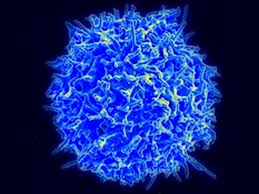In the latest edition of Cancer Cell researchers from University of California SF, look closely at intratumoral dendritic cells (DC). It is well understood that antigen-presenting cells (APCs) within tumors typically do not maintain cytotoxic T cell (CTL) function, despite engaging them. However within mice and human tumor biopsies there are intratumoral DC populations that within them contain CD103+ DCs , that are extremely sparse and yet remarkably capable CTL stimulators. These cells are uniquely dependent on specific transcription factors and are generated by GM-CSF and FTL3L cytokines. What has then been noted is that regressing tumors have higher proportions of these cells. Showing that T-cell-dependent immune clearance relies on them, and that increased numbers of their transcripts in human tumors correlates with clinical outcome i.e. an increased genetic signature of these cells results in better outcomes in a variety of tumor types. Thus concluding that this cell type presents opportunities for prognostic and therapeutic approaches across multiple cancer types.












